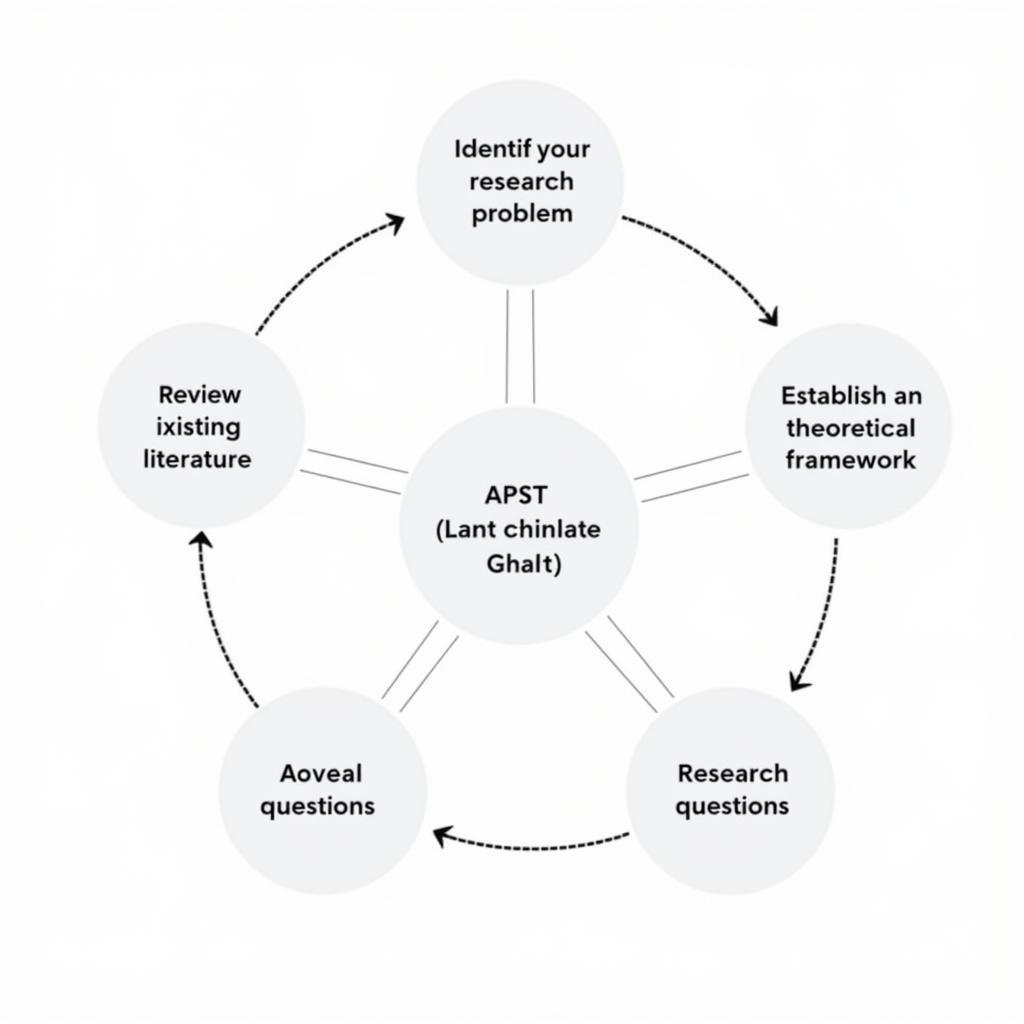The rationale in research, often considered the “why” behind your study, is the fundamental reasoning that underpins your entire project. It justifies the need for your research and explains why your chosen topic is worthy of investigation. In essence, the rationale acts as a bridge connecting your research question to its real-world implications and the existing body of knowledge.
Unpacking the Rationale: Why is it Important?
Imagine embarking on a journey without a destination in mind – that’s essentially conducting research without a clear rationale. A well-articulated rationale:
- Provides Direction: It acts as a compass, guiding your research design, methodology, and data analysis towards a specific goal.
- Establishes Significance: It highlights the potential contributions of your research to the field and its impact on future studies.
- Justifies Resource Allocation: It convinces stakeholders, including funding bodies, institutions, and supervisors, that your research is worthwhile and deserving of support.
- Demonstrates Critical Thinking: A strong rationale reflects your in-depth understanding of the subject matter and your ability to identify knowledge gaps.
Crafting a Compelling Rationale: Key Elements
 research rationale elements
research rationale elements
Building a robust rationale is like constructing a solid foundation for your research. Consider these essential elements:
- Identify the Research Problem: Begin by clearly defining the issue or question your research aims to address. What gap in knowledge or understanding are you trying to fill?
- Review Existing Literature: Analyze previous studies related to your topic. What are the existing theories, findings, and limitations? How does your research build upon or challenge existing knowledge?
- Establish a Theoretical Framework: Connect your research to relevant concepts, theories, and models in your field. This provides a lens through which you’ll interpret your findings.
- State the Research Questions and Hypotheses: Clearly articulate the specific questions your research will answer and the potential outcomes you anticipate.
- Explain the Significance and Implications: Discuss the potential contributions of your research. How will it advance knowledge, influence policy, or impact practice?
Rationale in Action: An Example from Paranormal Research
Let’s consider an example from the realm of paranormal investigation. Imagine you’re interested in exploring the phenomenon of Electronic Voice Phenomena (EVP).
Rationale Example:
“Despite growing public fascination with Electronic Voice Phenomena (EVP), scientific understanding of this phenomenon remains limited. Existing research primarily relies on anecdotal evidence and lacks rigorous methodological approaches. This study aims to address this gap by conducting controlled experiments to investigate the nature and origin of EVP recordings. Utilizing define rationale in research and advanced audio analysis techniques, this research seeks to contribute empirical data to the field and explore potential explanations for EVP beyond current theoretical frameworks.”
This rationale succinctly outlines the research problem, the gap in existing knowledge, the proposed methodology, and the potential contributions to the field.
FAQs about Rationale in Research
1. What is the difference between a rationale and a research question?
The rationale sets the stage for your research question by explaining why the question is important, while the research question is the specific inquiry your study aims to answer.
2. Can the rationale change during the research process?
While the core reasoning should remain consistent, the rationale can evolve and be refined as your research progresses and new insights emerge.
3. How long should the rationale be?
The length varies depending on the scope of your research, but a concise and focused rationale is generally more effective.
Seeking Further Guidance?
Navigating the intricacies of research can be challenging. For further assistance with crafting a compelling rationale or for any Paranormal Research inquiries, please contact us at:
Phone Number: 0904826292
Email: research@gmail.com
Visit our office: No. 31, Alley 142/7, P. Phú Viên, Bồ Đề, Long Biên, Hà Nội, Việt Nam.
Our dedicated team of experts is available 24/7 to provide support and guidance on your research journey.